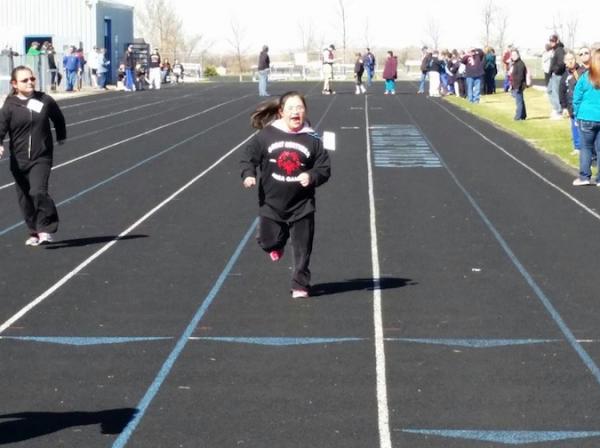Tulalip leadership testify in Dollar General case
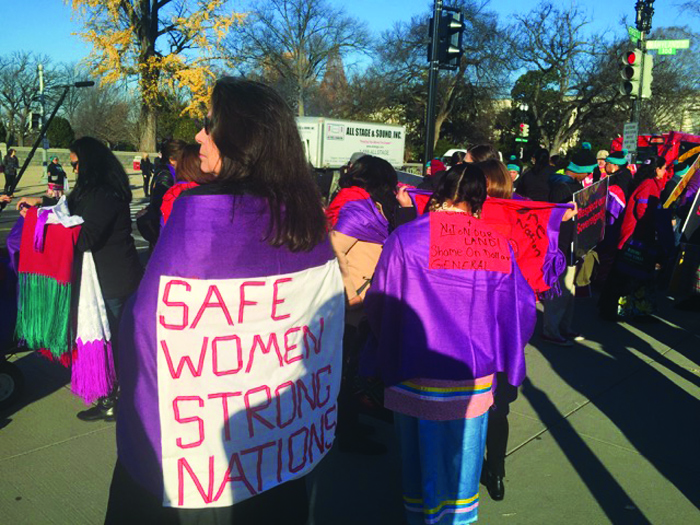
Photo/Bonnie Juneau
By Niki Cleary, Tulalip News
If you sign a contract with someone, the base understanding is that you have agreed and will abide by the terms of the contract. Seems fairly straightforward and it’s one of the ways that Tulalip reaffirms our sovereignty, by insisting that those who want to do business on our Reservation understand and agree that any legal issues will be heard in the Tulalip Court system. Dollar General, after signing a similar agreement to do business with the Mississippi Band of Choctaw Indians, is now arguing that a civil suit brought forward for alleged abuse of a minor, shouldn’t be subject to tribal court jurisdiction. On December 7th, Tulalip Board of Director Bonnie Juneau and Tulalip Youth Council Co-Vice Chairwoman Jlynn Joseph joined Indigenous people from across the nation in protest.
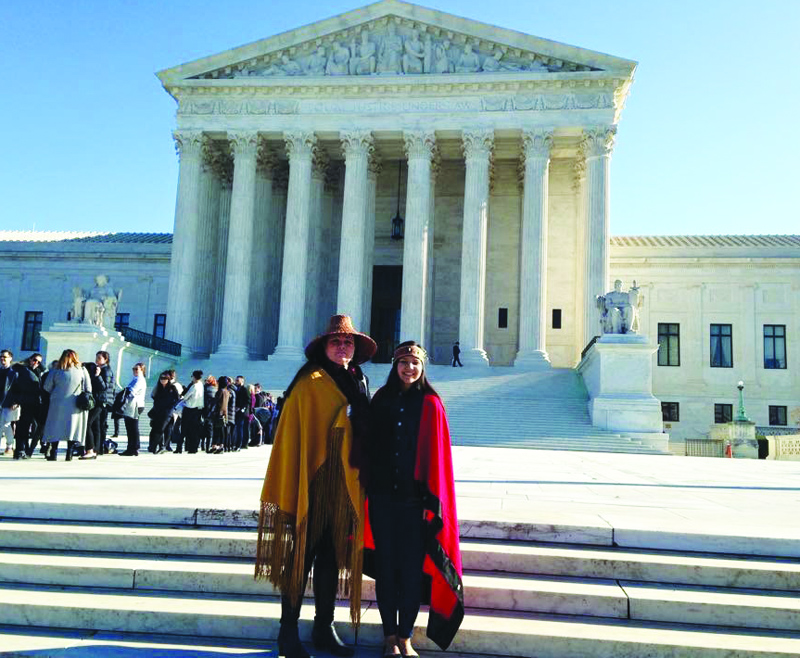
Photo/Bonnie Juneau
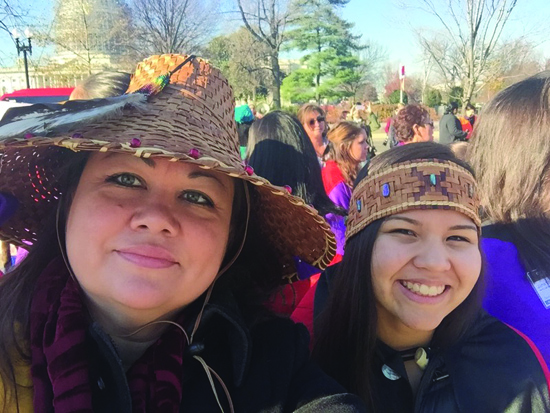
Photo/Bonnie Juneau
“Choctaw is similar to us, Tulalip,” said Bonnie. “They have the ability enter consensual agreements, contracts, with businesses. We’ve done this with Wal-Mart, Home Depot, and all the businesses in Quil Ceda Village. In that contract the business agreed to submit to the civil jurisdiction of our courts.”
The case is deeply concerning for several reasons, explained Bonnie.
“These businesses only want tribal jurisdiction and sovereignty when it benefits their bottom line,” she said. “They want the benefits of our lands and rights without honoring the laws of our land. Their big claim is that they feel the United States isn’t protecting their civil rights in tribal courts. If a U.S. citizen travels to Canada or Mexico, it’s understood that they agree to abide by the laws of those lands. If they don’t, does the Federal Government get involved in those cases? This isn’t a case of someone driving onto the reservation and not knowing they were there. Dollar General knowingly contracted with the Tribe, they knowingly agreed to tribal court jurisdiction.
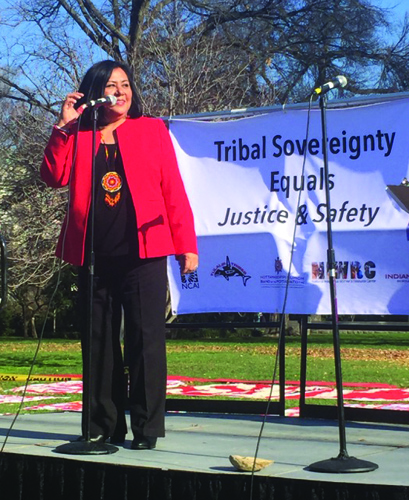
Photo/Bonnie Juneau
“Here at Tulalip, many of our judges have been non-Native and many of our juries include Native American and non-Native jurors, there have even been cases of some of our juries being completely non-native residents or employees of the Tribe. They’re questioning the credibility of our courts. I hope the United States understands that they need to honor the treaties that they made. Those treaties aren’t outdated any more than the Constitution of the United States is outdated.”
Tribal justice systems are sophisticated and include safeguards to ensure due process, Bonnie continued. Tribal jurisdiction, both civil and sometimes criminal, over non-Natives living or doing business on the reservation is vital because Federal law and justice systems are not set up to deal with local cases.
“It’s well known that the Federal court only takes the big cases. Our cases just aren’t big enough for them. Perpetrators have gotten away with crimes in the past, it’s one of the gaps that makes Quil Walkreservations a haven for criminals. It’s one of the reasons that the Violence Against Women Act’s (VAWA) tribal provisions were so important. It also shows us that it’s time to take VAWA one step further to include the protection of minors. The Federal Government cannot give non-Native criminals a free pass to commit crimes against Native Americans on Reservation. By not recognizing the authority of tribal courts that’s, in essence, what they’d be doing.
“This is also about workplace safety,” Bonnie continued. “SEIU (Service Employees International Union) has signed on and even gave their employees in D.C. the day off so that they could participate in the march (December 7th Quilt Walk for Justice). Beyond the jurisdictional issue, this family entrusted their child to this person as a mentor, that’s an immense amount of responsibility. Shame on you Dollar General, justice should be applied equally without prejudice, no matter the age, sex or race of the victim or the perpetrator. This case represents a threat to every Native woman, man and child victimized by a non-Indian.”
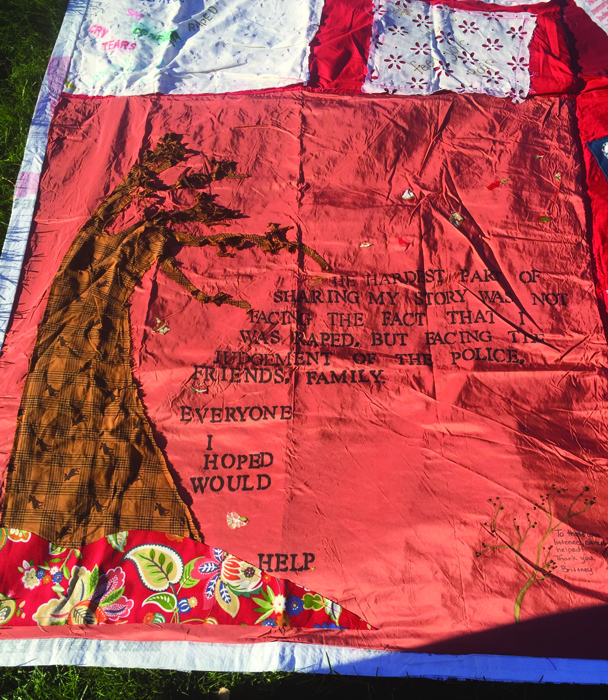
Photo/Bonnie Juneau


